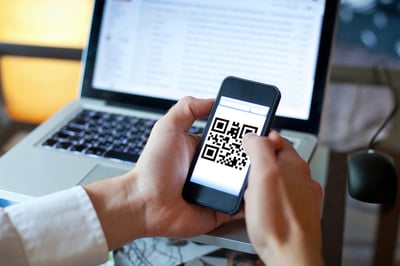 The Swiss National Cyber Security Centre (NCSC) has warned of a QR code phishing (quishing) campaign that’s targeting people in Switzerland via physical letters sent through the mail, Malwarebytes reports.
The Swiss National Cyber Security Centre (NCSC) has warned of a QR code phishing (quishing) campaign that’s targeting people in Switzerland via physical letters sent through the mail, Malwarebytes reports.
The letters purport to come from the Swiss Federal Office of Meteorology and Climatology (MeteoSwiss), asking recipients to scan a QR code to install a new app for severe weather warnings.
“The QR code shown in the letter leads to the download of malware called ‘Coper’ (also known as ‘Octo2’),” the NCSC says. “When the supposed ‘Severe Weather Warning App’ is installed, the malware attempts to steal sensitive data such as access data from over 383 smartphone apps, including e-banking apps.
The malware only affects smartphones that run on the Android operating system. As soon as the malware has been downloaded, it is displayed as the ‘AlertSwiss’ app on phones with the Android operating system.”
Malwarebytes notes that sending the codes via physical letters allows criminals to bypass technical security measures.
“Using QR codes in snail mail offers the criminals a few advantages,” the researchers write. “People may not expect to end up with their device infected by something as non-technical as a physical letter. And QR codes get typically read by mobile devices, which—unfortunately—still get overlooked when it comes to installing security software.”
Malwarebytes concludes that users should treat QR codes with the same caution they would use for clicking a link on their computer.
“If you scan a QR code, make sure to use an app that shows you the full URL and asks you first before it visits the URL encoded in the QR code,” the researchers write. “If you do not trust the URL, don’t allow your device to open the link and, if necessary, research to find another, more trustworthy, way to get the information or download you want.
Modern Android devices (version 8 and above) have a native QR code scanning capability built into the camera app. Some QR code scanner apps may have a feature that automatically executes actions like opening a website or downloading a file. Disable such features.”
KnowBe4 empowers your workforce to make smarter security decisions every day. Over 70,000 organizations worldwide trust the KnowBe4 platform to strengthen their security culture and reduce human risk.
Malwarebytes has the story.
 Here's how it works:
Here's how it works:




